
LYMPHOLOGY
Scope & Guideline
Driving discovery in hematology and immunology.
Introduction
Aims and Scopes
- Clinical Management of Lymphatic Disorders:
The journal emphasizes research on clinical interventions and management strategies for conditions like lymphedema, lipedema, and other lymphatic disorders, aiming to improve patient outcomes. - Innovative Therapeutic Approaches:
Studies frequently explore novel therapeutic techniques, such as acupuncture, cryotherapy, and shock wave therapy, highlighting their potential roles in treating lymphatic conditions. - Pathophysiological Insights:
Research often delves into the underlying biological mechanisms of lymphatic disorders, including genetic studies and the impact of cancer treatments on lymphatic function. - Multidisciplinary Perspectives:
The journal encourages a multidisciplinary approach, incorporating insights from oncology, genetics, and rehabilitation to provide a comprehensive view of lymphatic health. - Systematic Reviews and Meta-Analyses:
The publication of systematic reviews underscores the importance of synthesizing existing research to inform best practices in lymphology.
Trending and Emerging
- Integration of Technology in Treatment:
Emerging studies are increasingly focusing on the use of advanced imaging techniques and technology-driven therapies, such as bioimpedance spectroscopy and lymphoscintigraphy, to enhance diagnostic accuracy and treatment efficacy. - Holistic and Multimodal Treatment Approaches:
There is a growing trend towards exploring holistic treatment strategies that combine various modalities, including manual lymphatic drainage, kinesiology taping, and psychological interventions, to address the multifaceted nature of lymphatic disorders. - Impact of Cancer Treatments on Lymphatic Health:
With an increasing number of cancer survivors, research is trending towards understanding the long-term effects of cancer treatments on lymphatic health, particularly in relation to lymphedema and associated complications. - Patient-Centered Care and Quality of Life Assessments:
Emerging themes include the assessment of patient-reported outcomes, self-efficacy, and quality of life in individuals with lymphatic disorders, reflecting a shift towards more patient-centered research. - Genetic and Molecular Studies:
There is a rising interest in genetic predispositions and molecular mechanisms underlying lymphatic diseases, which could lead to targeted therapies and personalized medicine approaches.
Declining or Waning
- Historical Perspectives on Lymphology:
There has been a noticeable reduction in papers focusing on historical analyses and retrospective studies related to lymphatic disorders, suggesting a shift towards more contemporary and forward-looking research. - Basic Science Research:
Research that primarily emphasizes basic science aspects of lymphatics, such as lymphatic embryology or fundamental cellular mechanisms, has decreased, possibly indicating a growing preference for clinical applications and translational research. - Single Case Studies:
The frequency of single case studies appears to be waning as the journal prioritizes larger cohort studies and systematic reviews that provide broader insights into lymphatic conditions.
Similar Journals

Therapeutic Advances in Neurological Disorders
Transforming understanding into effective therapies for neurological challenges.Therapeutic Advances in Neurological Disorders, published by SAGE Publications Ltd, is a leading open access journal dedicated to the advancement of knowledge in the field of neurology. Since its inception in 2008, this journal has established itself as a vital resource for researchers, healthcare professionals, and students, offering a platform for the dissemination of high-quality research that improves the understanding and treatment of neurological disorders. With a commendable impact factor and ranked Q1 in multiple categories, including Neurology and Pharmacology for 2023, it exemplifies excellence in scholarly contributions. The journal's Scope encompasses a wide array of topics, providing insights that are pivotal for clinical practice and pharmacological development. Additionally, with its commitment to open access since 2017, Therapeutic Advances in Neurological Disorders ensures that its research reaches a global audience, fostering collaboration and innovation in neurological science.

Current Reviews in Musculoskeletal Medicine
Elevating Orthopedic Insights and InnovationsCurrent Reviews in Musculoskeletal Medicine, published by Springer, is a leading journal dedicated to the field of musculoskeletal health, contributing to the advancement of knowledge in orthopedics and sports medicine. With an impressive impact factor and consistently ranked in the Q1 category of its field (2023), this journal is recognized for its rigorous peer-reviewed articles that span from innovative research findings to comprehensive reviews. Published since 2008 and set to continue through 2024, the journal boasts a Scopus Rank of #23 out of 321, placing it in the top 92nd percentile within its category. Although access is not open, the journal's insights are invaluable for researchers, clinicians, and students seeking to stay updated on the latest advancements and evidence-based practices within musculoskeletal medicine. The esteemed contributions featured in this journal play a critical role in shaping the future of orthopedic practices and enhancing patient care outcomes.

Lymphatic Research and Biology
Exploring the vital connections between lymphatics and cardiovascular health.Lymphatic Research and Biology, an esteemed journal published by MARY ANN LIEBERT, INC, plays a critical role in the exploration of lymphatic biology and its implications in cardiology and cardiovascular medicine. Established in 2003, this journal has dedicated itself to advancing our understanding of lymphatic function, disorders, and innovative therapeutic strategies, making it a significant resource for researchers and practitioners in the field. With an ISSN of 1539-6851 and an E-ISSN of 1557-8585, it provides a platform for cutting-edge research, reviews, and clinical studies aimed at bridging the gap between basic science and clinical applications. While currently not an open-access journal, it offers a wealth of knowledge pertinent to those involved in lymphatic health and cardiovascular research. With a 2023 Scopus ranking placing it in the second quartile (Q2) for Cardiology and Cardiovascular Medicine, this journal is poised to influence the next generation of scientific inquiry and practice.
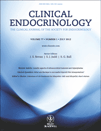
CLINICAL ENDOCRINOLOGY
Your gateway to the latest in endocrinology excellence.CLINICAL ENDOCRINOLOGY, published by Wiley, is a premier journal in the field of endocrinology, providing a vital platform for the dissemination of cutting-edge research and advancements in the diagnosis and treatment of endocrine disorders. Since its inception in 1972, this prestigious journal has maintained its commitment to excellence with its scope encompassing diverse areas within endocrinology, diabetes, and metabolism, evidenced by its impressive ranking in the Q2 quartile for these categories as of 2023. With a growing impact factor, it serves as a leading reference for researchers and healthcare professionals dedicated to improving patient outcomes. Although the journal does not currently offer open access, it remains accessible through institutional subscriptions, ensuring that vital research reaches an expansive audience. Its robust focus on clinical applications makes CLINICAL ENDOCRINOLOGY an essential resource for anyone involved in the evolving field of endocrinology, thereby underscoring its importance in shaping future research and practice in healthcare.

BLOOD REVIEWS
Pioneering insights into blood health and disease.BLOOD REVIEWS is a highly regarded journal published by Churchill Livingstone, specializing in the fields of Hematology and Oncology. With an impressive Q1 ranking in both disciplines and placing in the top 10% of its peer categories according to Scopus metrics, it provides an essential platform for the dissemination of cutting-edge research and reviews pertaining to blood disorders and cancer treatment. Since its inception in 1987 and continuing through 2024, the journal has established itself as a cornerstone for healthcare professionals, researchers, and students who seek to advance their understanding of hematologic and oncologic topics. While not an open-access journal, BLOOD REVIEWS retains a reputation for delivering high-quality, peer-reviewed articles that foster dialogue and innovation within the scientific community. For those in the United States and beyond, the journal serves as a vital resource, housed at the Journal Production Department in Edinburgh, Scotland, ensuring accessibility and a global reach in its critical academic contributions.
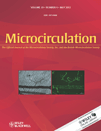
MICROCIRCULATION
Transforming Understanding of Microcirculatory ProcessesMICROCIRCULATION, published by WILEY, is a leading journal dedicated to the exploration of microcirculatory processes in health and disease. With an ISSN of 1073-9688 and E-ISSN 1549-8719, this journal has been a vital resource in the fields of cardiology, molecular biology, and physiology since its convergence in the early 1980s. Given its impressive impact factor within its quartile rankings—Q2 in Cardiology and Cardiovascular Medicine, and Q3 in several other categories—MICROCIRCULATION is positioned as an influential platform for researchers and clinicians interested in the intricacies of microvascular function. While it is not an open-access journal, the research published here contributes significantly to the body of knowledge regarding microvascular health, cardiovascular adaptations, and related molecular mechanisms, appealing to a broad spectrum of academics and medical professionals committed to advancing their understanding in this critical area. Explore the breakthroughs and insights presented in MICROCIRCULATION and stay at the forefront of ongoing research and discussions.
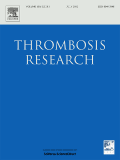
THROMBOSIS RESEARCH
Transforming Understanding of Blood Clotting MechanismsTHROMBOSIS RESEARCH is a leading peer-reviewed journal in the field of hematology, published by PERGAMON-ELSEVIER SCIENCE LTD. With an impressive impact factor and ranked within the top 10 of 137 in its category according to Scopus, this journal provides a critical platform for the dissemination of innovative research related to thrombosis and hemostasis. Established in 1972, THROMBOSIS RESEARCH has been at the forefront of scholarly communication, addressing key issues, findings, and advancements over more than five decades. Recognized for its high-quality content, the journal is categorized in the Q1 quartile for 2023, reflecting its influence and relevance within the scientific community. Researchers, medical professionals, and students engaged in the study of blood disorders will find valuable insights and the latest discoveries within its pages. Although currently not an open-access publication, THROMBOSIS RESEARCH remains accessible to a wide audience through institutional subscriptions, ensuring that vital research continues to inform and enhance clinical practices around the globe.

Blood Research
Illuminating the Path in Blood Research and Patient CareBlood Research, published by SPRINGER, is a premier journal dedicated to the multifaceted realm of hematology, serving as a crucial platform for disseminating innovative research findings and advancements in the diagnosis and treatment of blood-related disorders. With an ISSN of 2287-979X and an E-ISSN of 2288-0011, this journal is recognized for its commitment to scholarly excellence and impact in the field, currently holding a reputable Q2 ranking in the Hematology category as per the 2023 metrics. The journal spans from 2013 to 2024, providing a broad archive of quality research that is vital for researchers, healthcare professionals, and students alike. Although it is not an Open Access journal, it offers insightful contributions that enhance the understanding of hematological science, fostering the exchange of knowledge crucial for advancing patient care and clinical practices globally. The journal’s performance is underscored by its Scopus ranking in the 46th percentile, reflecting its significant role in the ongoing discourse in hematology.
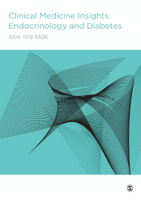
Clinical Medicine Insights-Endocrinology and Diabetes
Elevating standards in diabetes management and research.Clinical Medicine Insights-Endocrinology and Diabetes, published by SAGE Publications Ltd, is a dynamic open-access journal dedicated to advancing the field of endocrinology and diabetes through high-quality research. Since its inception in 2008, this journal has become an essential resource for researchers, healthcare professionals, and students interested in the latest innovations and clinical practices in the realm of diabetes management and endocrine disorders. With an impressive 2023 JCR Q2 ranking in both Endocrinology, Diabetes and Metabolism and Internal Medicine, the journal serves as a pivotal platform for scholarly discussions, focusing on the convergence of clinical insights and therapeutic advancements. By offering an open-access model, the journal ensures that its articles are accessible to a global audience, thus promoting the dissemination of knowledge and best practices in the treatment of these critical health issues. The journal's commitment to excellence is reflected in its Scopus rankings, which position it among the noteworthy publications in the field. As it converges from 2009 to 2024, Clinical Medicine Insights-Endocrinology and Diabetes remains a cornerstone for impactful research, inspiring collaborations and serving as a vital reference for ongoing developments in patient care and treatment methodologies.
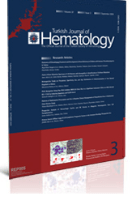
Turkish Journal of Hematology
Empowering the global hematology community through open access.Turkish Journal of Hematology is an esteemed publication dedicated to advancing the field of hematology, producing influential research since its inception in 1999 under the auspices of GALENOS PUBL HOUSE. With an Open Access model, it facilitates widespread dissemination of knowledge, allowing researchers, clinicians, and students to stay abreast of the latest developments in blood disorders and treatments. With an ISSN of 1300-7777 and an E-ISSN of 1308-5263, the journal holds a commendable position in the academic community, evidenced by its 2023 Q3 ranking within the hematology category and its standing at #80 out of 137 in the Scopus database, placing it in the 41st percentile. Covering a wide scope of topics within hematology, this journal serves as a critical resource for disseminating innovative research and clinical practices pertinent to the ongoing challenges faced in this vital area of medicine. With its continuous publication until 2024, Turkish Journal of Hematology remains a beacon for enhancing the understanding and treatment of hematological conditions within the Turkish and global medical communities.